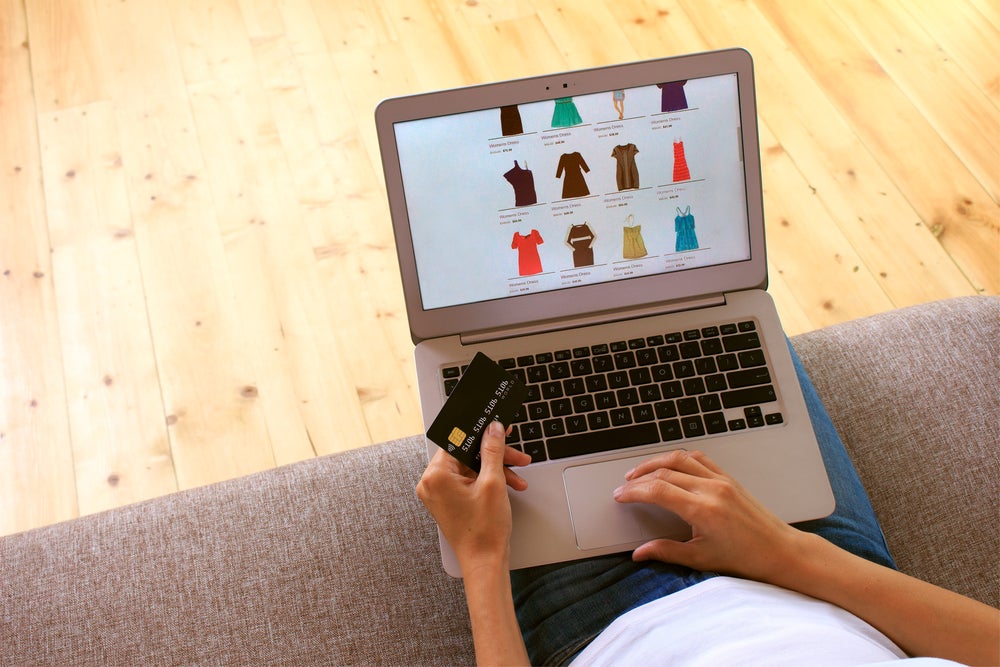Speaking at the event, AAFA’s director of brand protection Jennifer Hanks voiced her support for the Stopping Harmful Offers on Platforms by Screening Against Fakes in E-Commerce (SHOP SAFE) Act, which was reintroduced by US Senators Chris Coons and Thom Tillis in September 2023 and could help tackle the growing problem of counterfeit apparel.
“That would hold third party online platforms accountable, so they’d be incentivised to make the necessary changes. They would need to meet the same requirements and face the same accountability as brick-and-mortar stores,” Hanks explained.
The proposed legislation would encourage online selling platforms to use best practices for vetting sellers and stopping repeat offenders on counterfeit products.
“They talk about zero tolerance for counterfeits – a value that’s commendable – but we’ve been hearing that for years,” Hanks said of e-commerce sites, as she added that “close to half” of the sellers on some well-known sites are counterfeiters. She said that it was now time for these sites to put “words into action”.
In October (2023), AAFA called upon the United States Trade Representative (USTR) to consider adding several platforms to the 2023 Review of Notorious Markets for Counterfeiting and Piracy lists.
Consumer education on the possible dangers of fake products was also recommended, as AAFA highlighted some recent cases of potentially dangerous counterfeit apparel products destined for the US market.
A haul of children’s sleepwear was seized by US Customs and Border Protection in November (2023), after being identified as an Intellectual Property Rights violation. Imported from China, the US Consumer Product Safety Commission said the products also failed flammability requirements under the Flammable Fabrics Act.
“The vast majority of children’s clothing that are counterfeit trademarks or designs also pose health and safety risks such as the failure to meet flammability standards, as they are made with inferior materials,” Hanks warned.
Last year, AAFA conducted tests on 47 counterfeit products, including clothing, footwear and accessories, and found that 36.2% of the items failed to comply with US safety standards. Some of the tested items contained dangerous levels of poisonous materials including lead, arsenic and phthalates.
“Not only did these items fail US safety standards, but they could also have made consumers dangerously ill,” Hanks said.
The growing scale of the issue, as online sales have become increasingly popular since the pandemic, was also clear. Hanks said this is damaging the US economy.
"Legitimate brands invest millions to build, train and inspect supply chains to ensure that the clothes and shoes and accessories bought and worn by American families are not only fashionable, but affordable and are also ethically and sustainably sourced and safe for consumers," Hanks added. "It's beyond dispute that counterfeits cause grave harm to innovation and our economy."
The National Association of Manufacturers estimated that counterfeit products cost the the US economy $131bn and 325,000 jobs in 2019. It cited the rise of e-commerce as a factor in the growing trend for these fake products.
In November (2023), the US Attorney’s Office in New York announced it had seized its largest-ever haul of counterfeit goods including bags, clothes, shoes and other products, with an estimated retail value of $1.03bn, from a storage facility in the state.
Consumers were also warned that counterfeiters often target customers for other illicit activities, including money laundering and cybercrime, once they have made their purchases. Hanks said that consumers should be wary of these sellers: “Their entire business model is based on stealing somebody else’s innovation and identity.”
USA-IT spokesperson and former active executive associate director of homeland security investigations Alysa Erichs added that there was “no silver bullet” for tackling counterfeits and stressed that consumers have a role to play in shutting down the market.
“The lucrative third party sellers posting knock-offs on social media are often directly benefitting a host of nefarious actors,” Erichs warned, adding that beneficiaries from counterfeit products could include transnational criminals and even terrorist organisations. “The buying and selling of counterfeit or stolen goods is most certainly not a petty or victimless crime,” she added.
“It’s about making a choice the right choice,” Erichs added and asked consumers not to let “Black Friday fund the black market”.
AAFA's Hanks added the pending legislation would help, alongside raised consumer awareness, to stamp out the problem. She added: “We have before us legislation that can break this cycle and change the narrative and finally deny counterfeiters the ability to prey on our population.”









